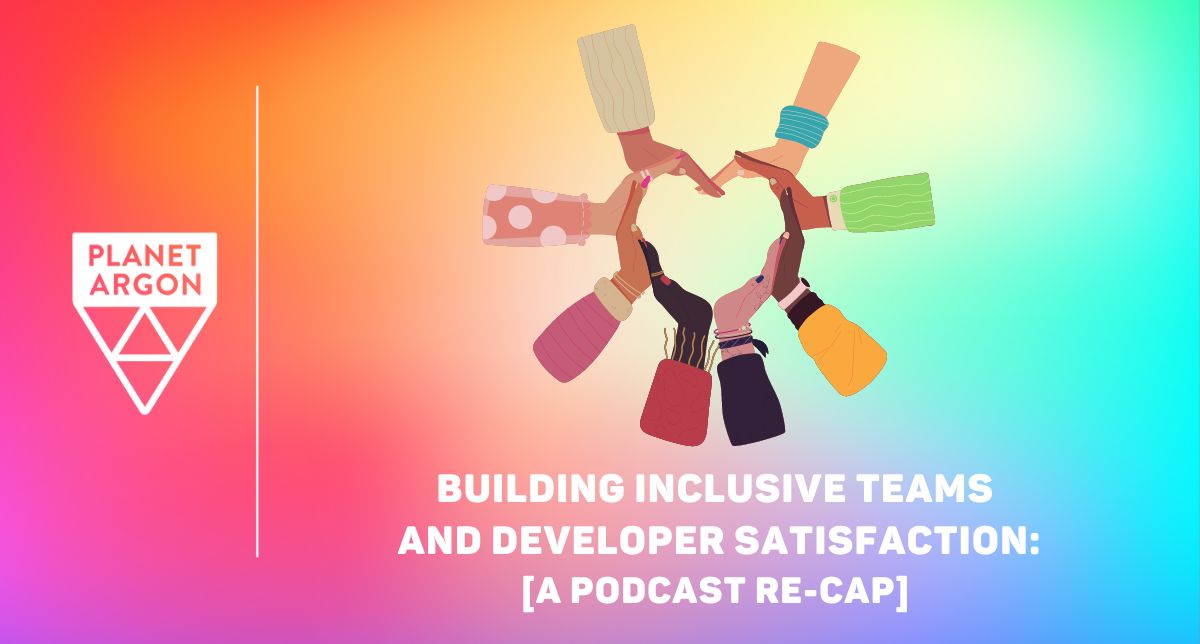
Our Engineering manager, Ben Parisot, is known for his proactive approach on LinkedIn, where he highlights available jobs in software engineering and offers advice on transitioning into tech roles. He was recently invited to the Scaling Tech Podcast with Arin Sime to talk about some of the current trends in the job market. More specifically, Ben and Arin discussed the importance of cultivating an inclusive and diverse environment by actively engaging with underrepresented groups. They followed up these topics with some ways to boost and maintain developer satisfaction. Below is a recap of their conversation, with links to listen to the full episode.
Current Trends in the Software Development Job Market
Ben credits his inspiration for weekly job postings to Angela Hawser, a colleague who posted job listings daily on a Slack channel they both frequented. This act of kindness inspired Ben to contribute similarly.
Observations
- Scarcity of Junior Roles: There's a noticeable decline in junior or entry-level job openings.
- High Demand for Senior Roles: Companies are heavily recruiting for senior or staff-level positions.
- Focus on Machine Learning and Data Science: There is an increasing demand for roles in these fields.
- Integration Expertise: Many job postings seek skills in integrating apps with GPT or other AI models, and familiarity with SDKs and APIs is becoming essential.
- Shift in Tech Stack Requirements: The traditional MERN stack requirements are being replaced by a demand for skills in TypeScript, Next.js, Python, and Ruby.
- App Infrastructure Knowledge: Even front-end roles now require knowledge of app infrastructure and deployment tools, including CI/CD pipelines, AWS services, containers, and serverless technologies.
A Nontraditional Path into Tech
Ben's career began with a degree in English and a focus on journalism. With limited job opportunities in newspapers, he transitioned to copywriting, working with an SEO agency. This experience paved the way for his own digital marketing consultancy specializing in content marketing and SEO, eventually leading him into technical project management and software development.
Ben shared that he has fortunately not faced direct discrimination due to his identity. However, he highlighted the subtle challenge of often being the only non-cis, non-white, or non-heterosexual person on predominantly homogenous teams. This “othering” experience is more pronounced for non-white or female-presenting engineers, but it is something he has felt as well.
Encouraging Diversity and Inclusion in Tech
Ben emphasized that the so-called "pipeline problem" often results from hiring teams relying on traditional, familiar sourcing methods, which yield homogenous candidate pools. To foster diversity, companies must:
- Proactive Engagement: Engage with diverse groups continuously, not just when in need.
- Build Relationships: Form connections, sponsor organizations, and participate in networking events and conferences.
- Create a Safe Workplace: Ensure the company provides a psychologically safe environment for all employees, beyond just hiring for diversity.
Resources for Diversity Initiatives
Ben recommended several organizations that support diversity in tech:
- Out in Tech
- Women Tech
- Blacks in Technology
- People of Color in Tech
- Society of Hispanic Professional Engineers (SHPE)
- Techqueria
Improving Developer Satisfaction
As Planet Argon operates as a consultancy, its employees often work with various clients, making developer satisfaction a unique challenge. Ben outlined several strategies:
- Understand Developer Satisfaction: Measure what matters and do it consistently.
- Integrate Feedback Tools: Use tools that fit seamlessly into developers' workflows, like Slack integrations and simple web forms.
- Consistency is Key: Regularly track and review sentiment; Planet Argon has done so quarterly for nearly three years.
- Make Feedback Relevant: Use survey responses to guide internal improvements and make them a regular discussion point in meetings.
Key Insights on Developer Satisfaction
- Focus Can Be Double-Edged: Focusing on one area can improve its score but may cause declines in others.
- Announced Improvements: Announcing efforts can temporarily boost satisfaction scores, but failure to follow through can cause them to drop significantly.
The Role of AI in Software Development and Developer Experience
While Planet Argon has not broadly adopted AI tools, individual engineers use them for specific tasks:
- Content Creation and Bug Triaging: Tools like ChatGPT generate content, troubleshoot app installations, and handle error messages.
- Mixed Success with AI: Ben has experimented with AI tools for issue tracking with varied results.
- Selective AI Use: AI tools should enhance workflow without being intrusive. Mandatory use of tools like Copilot, which can disrupt flow, may negatively impact developer experience.
Best Practices for Tool Adoption
- Bottom-Up Approach: Encourage tool adoption from the bottom-up rather than imposing them from the top.
- Consensus and Transparency: Clearly communicate the purpose and benefits of new tools and acknowledge the burden of adopting them.
Maintaining Morale Across Diverse Teams
Ben believes that engineers need to feel valued in their work through user feedback or internal recognition. Effective strategies include:
- Shout-Outs: Begin meetings with a session for team members to thank or praise each other, formalizing recognition and appreciation.
- Understanding Individual Motivations: Managers should know what motivates each team member, whether it's feedback, client praise, or financial rewards. This understanding helps tailor support and task assignments to individual preferences.